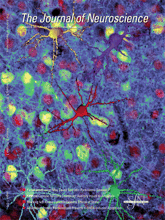
Retractions have been published for four papers authored by former Wayne State University professor, Teresita L. Briones, after an April ORI report found evidence of misconduct in the articles.
Investigators found that Briones had “intentionally, knowingly, and recklessly engaged in research misconduct by falsifying and/or fabricating data.” They flagged five papers and three grant applications that contained false data.
As a result of their findings, four out of the five papers have been retracted, and the editors of the remaining journal say they are looking into the last paper.
Continue reading Four papers by former Wayne State researcher retracted after ORI report








